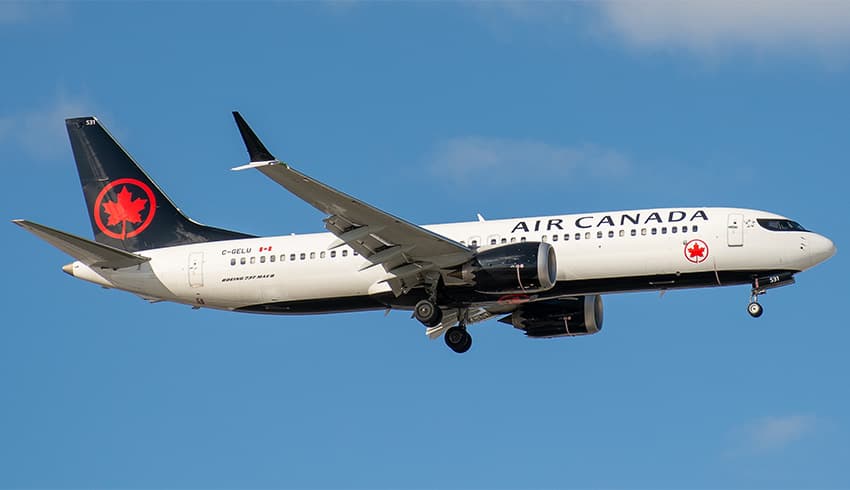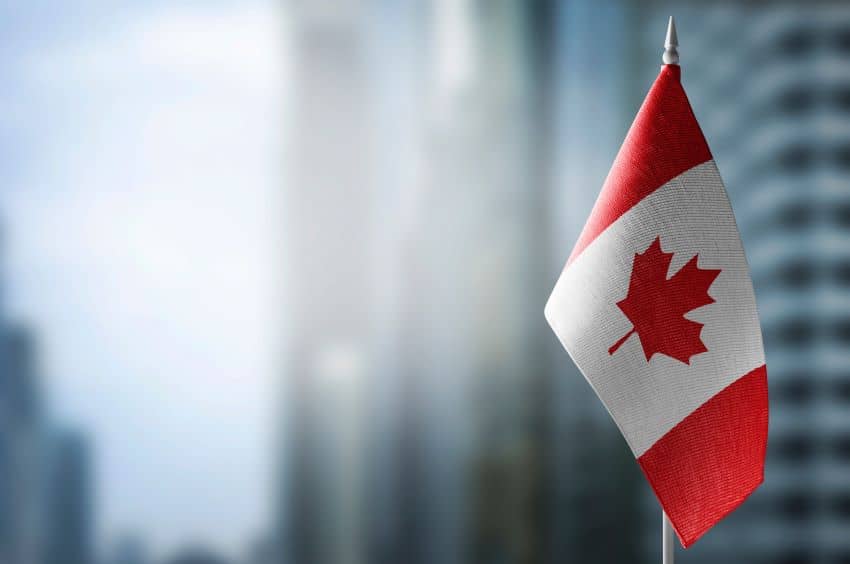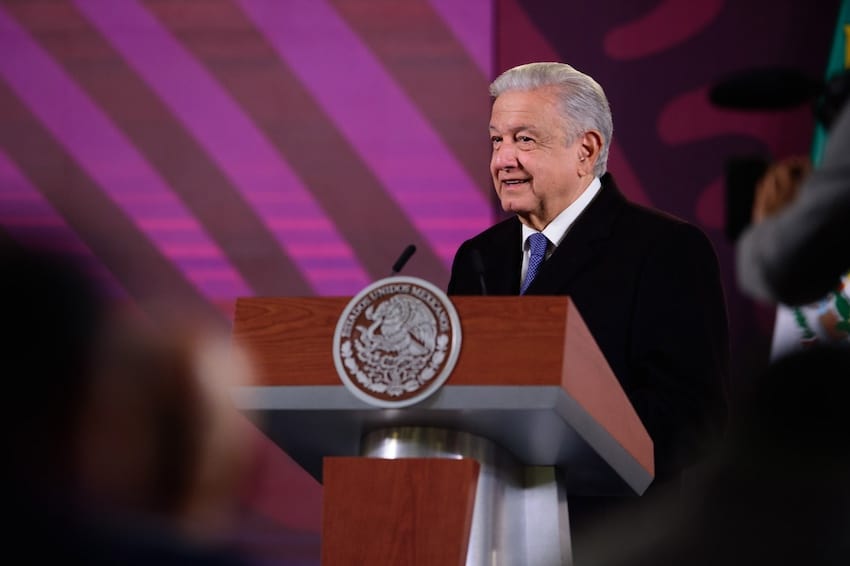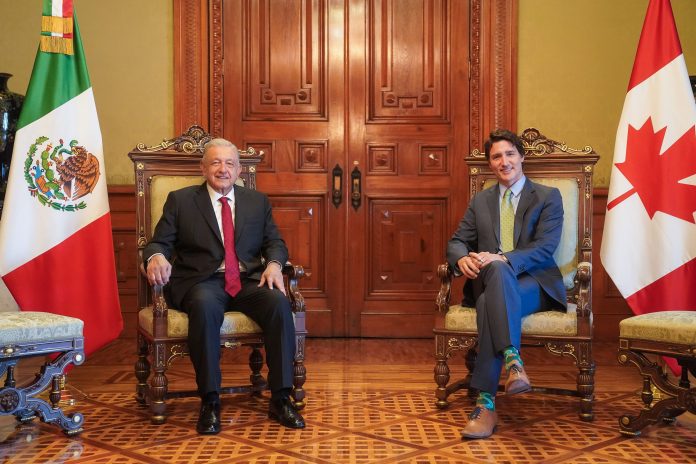The number of Mexicans seeking asylum in Canada surged last year, and Canadian authorities believe that crime groups in Mexico are playing a role in sending some of them to the country.
President Andrés Manuel López Obrador acknowledged Canada’s concerns on Tuesday and said that the Mexican government is dealing with the issue.

Data from the Immigration and Refugee Board of Canada shows that Mexicans submitted 17,490 claims for asylum in the first nine months of 2023, up 134% from a total of 7,483 in the whole of 2022. The number in 2013 was just 128.
Last year, Mexicans made more asylum claims in Canada than nationals of any other country. Just under 2,000 were accepted, while the remainder of applications were rejected, withdrawn or have not yet been processed. It is likely that some of the Mexicans who applied for asylum in Canada last year have since entered the United States.
Canadian Prime Minister Justin Trudeau said Friday that his government was “in conversations with Mexico about making sure that the number of asylum seekers — some of them supported by organized crime in Mexico to come up to Canada — are reduced.”
Since 2016, Mexicans have not needed a visa to travel to Canada, but Canadian officials have recently suggested that could change. Mexicans affiliated with criminal organizations began entering Canada in greater numbers once the visa requirement was dropped, according to Canadian intelligence reports.

A number of Mexican criminal groups, including the Sinaloa Cartel, have a presence in Canada, according to the website Insight Crime.
Trudeau’s remarks at an event in Winnipeg came after the Royal Canadian Mounted Police (RCMP) told the immigration committee of the lower house of the Canadian parliament earlier this month that it was investigating the role of crime groups in the smuggling of people to Canada.
“We can say that in Canada from our investigations across the country that there is Mexican organized crime involved in this,” said Richard Burchill, an RCMP acting assistant commissioner.
López Obrador was asked about the Canadians’ assertions at his morning press conference on Tuesday.
He told reporters that Truedau raised the issue with him during their bilateral meeting on the sidelines of the APEC conference in San Francisco last November.
“We agreed there that the foreign ministers of Canada and Mexico would deal with this matter. And there have been several meetings about this and we’re already taking measures, an agreement with Canada is being sought,” López Obrador said.
The Ministry of Foreign Affairs (SRE) said in a statement on Jan. 24 that “due to the concerns about the increased number of Mexican asylum seekers in recent months, in December 2023, we held the sixth interim meeting of the Mexico-Canada High-Level Dialogue on Human Mobility.”
“… As a result of this meeting, we agreed to establish joint measures, which are making good progress, as reflected in the decreased number of asylum applications for the month of December,” the ministry said without specifying what those measures were.
The SRE also said it would “look for new solutions that can address the legitimate concerns of Canada and its provinces and, in turn, maintain the dynamic human mobility between our nations, which strengthens the economic exchanges and growth in the region.”

Asked on Tuesday whether organized crime is connected to the asylum claims filed by Mexicans in Canada, López Obrador responded:
“No. The thing is that there is an increase in asylum applications and we have to see if they really are people who need asylum or if it is [just] a means to get into Canada. … It’s an issue that the government of Canada has raised with us. … Prime Minister Trudeau raised it with me directly and we agreed to deal with it, but in a very respectful way.”
Apparently referring to the possible reinstatement of a visa requirement for Mexicans seeking to enter Canada, López Obrador said the Canadians “don’t want to take a unilateral measure that could affect Mexico, and we thank them very much for that.”
Francois Legault, the premier of the province of Quebec, wrote to Trudeau in January to urge the prime minister to take action over the flow of asylum seekers into Quebec and provide compensation for costs his government has incurred by taking them in.
“Mexican nationals represent a growing proportion of the asylum seekers arriving in Quebec, the possibility of entering Canada from Mexico without a visa certainly explains part of the flow of asylum seekers,” Legault said.
Canadian Minister of Public Safety Dominic LeBlanc subsequently said that he and Immigration Minister Marc Miller were considering visas and other measures for Mexican nationals seeking to enter Canada.
The United States government last year asked its Canadian counterpart to consider reintroducing visas for Mexicans due to an increase in illegal crossings into the U.S. from Canada.
Miller indicated last week that the Canadian government would implement measures to reduce Mexican asylum seeker numbers, but remarked,”I’m not going to tell you in advance when it will occur.”
The immigration minister didn’t specifically mention that authorities were planning to reintroduce a visa requirement, which was introduced by the Canadian government led by former Conservative Party prime minister Stephen Harper in 2008 and scrapped less than a year after after Truedau took office in November 2015.
With reports from El País, The Globe and Mail, National Post and Reuters
